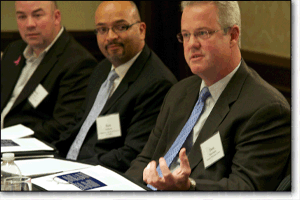- Home
-
News
- Back to parent navigation item
- News
- National Compliance Officer Day 2025
- Accounting & Auditing
- AI
- AML
- Anti-Bribery
- Best Practices
- Boards & Shareholders
- Cryptocurrency and Digital Assets
- Culture
- ESG/Social Responsibility
- Ethics & Culture
- Europe
- Financial Services
- Internal Controls
- Regulatory Enforcement
- Regulatory Policy
- Risk Management
- Sanctions
- Surveys & Benchmarking
- Supply Chain
- Third Party Risk
- Whistleblowers
- Opinion
- Benchmarking
- Certification
- Events
- Research
- Awards
-
CW Connect
- Back to parent navigation item
- CW Connect
- Sign In
- Apply
- Membership
- Contact
THIS IS MEMBERS-ONLY CONTENT
You are not logged in and do not have access to members-only content.
If you are already a registered user or a member, SIGN IN now.
Related articles
-
 Article
ArticleSupply Chain Risk Assessments Require Digging Through the Data
2014-06-10T00:00:00Z By Joe Mont
Think you've got supply chain headaches? Consider the challenges facing George Henein, compliance officer for the United Nations' procurement division. The UN deals with more than 60,000 vendors across the world and strives to give them all some level of scrutiny.The UN's mission of fostering economic development among member states ...
-
 Article
ArticleStudies Say Companies Lacking in Supply Chain Risk Management
2013-08-27T00:00:00Z By Jaclyn Jaeger
-
 Opinion
OpinionEthics as strategic value: When compliance becomes a board-level decision tool
2026-02-05T00:46:00Z By Barbara Badoino CW guest columnist
For many Boards of Directors, compliance reporting feels familiar and reassuring. Dashboards are green. Policies are updated. Training is complete. Incidents are investigated and closed. On paper, the system works.
- Terms and Conditions
- Privacy Policy
- Do Not Sell My Info
- © 2025 Compliance Week
Site powered by Webvision Cloud







